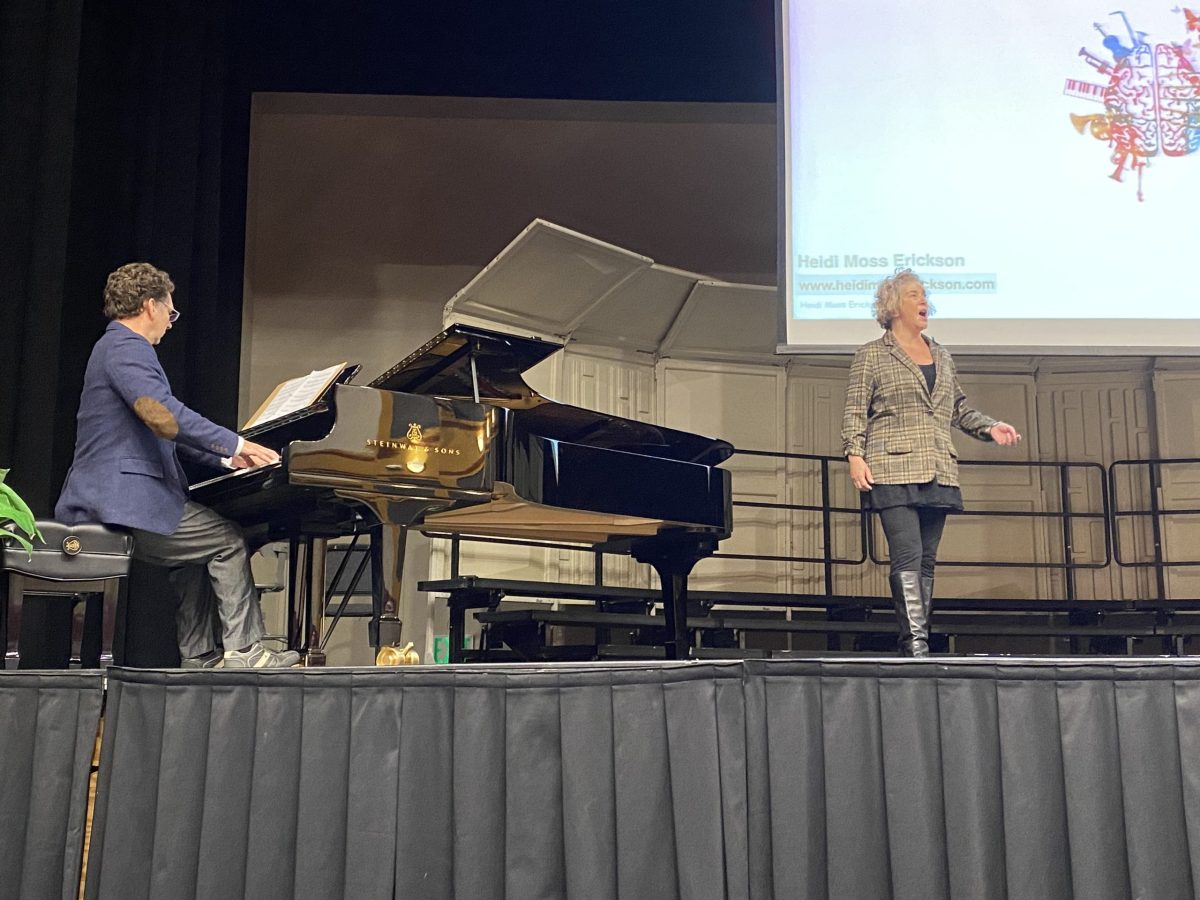Music majors and professors listened to a San Francisco performer, educator and scientist speak about the correlations between music and the brain on Oct. 24 in the Recital Hall.
Heidi Moss Erickson, a singer-songwriter, touched on topics like focus and learning during the Cosumnes River College special event “Music and the Brain: How Neuroscience Can Make Us Better Teachers and Performers”, hosted by the Art’s, Media and Entertainment division. The event was also co-sponsored by the Music Teachers’ Association of California.
Erickson said a cranial nerve injury disrupted her career in 2007 and she was told that she may never sing again.
“Using her own scientific research and strategies, particularly how music, speech and singing is processed in the brain, she rehabilitated herself and found a newfound joy for singing,” said Kevin Martinez, the president of the Sacramento branch of the MTAC.
Erickson spoke about the fact that music isn’t something new, but something that humans have developed over time. She played an audio recording of a neanderthal flute, an instrument made from the femur of a cave bear, said to have been 60,000 years old.
“It’s a fundamental part of our beings and we sometimes forget that,” Erickson said.
Erickson said making music is a universal skill that everyone is capable of doing.
“I think our society, like a lot of other things, is focused on the mechanism,” Erickson said. “Whether it’s singing or playing an instrument, there’s a lot of fixation on the technical parts of making music.”
Erickson said if an alien were to come to Earth and watch a computer printer, the alien would assume that putting the paper into the printer was the beginning of the printing process. Erickson said it’s really the computer that comes first and it’s the brains for the process of creating music.
“Like the computer for the printer, our brain is the control center,” Erickson said.
Erickson talked about homeostasis and how we seek balance in our lives. She spoke on the predictive functions in our brains and how the brain uses data from past experiences to calculate the best possible interpretation of both the present and the future.
“Singers have the most well wired predictive mechanism of all instruments because it’s biological,” Erickson said.
Erickson said rest and consolidation after a long day of learning is important.
“Rest is not a luxury,” Erickson said. “Rest is essential, we have to encourage it.”
Bay Area performer and professor speaks about music’s relationship to the brain
Heidi Moss Erickson and her husband Kurt Erickson perform at the beginning of the CRC special event “Music and the Brain: How Neuroscience Can Make Us Better Teachers and Performers” on Oct. 24. The event was hosted by the CRC Arts, Media and Entertainment division as well as the Music Teachers’ Association of California.
0

